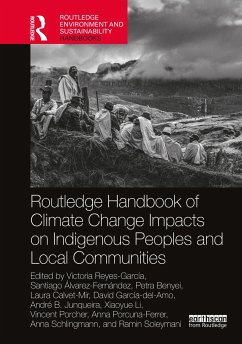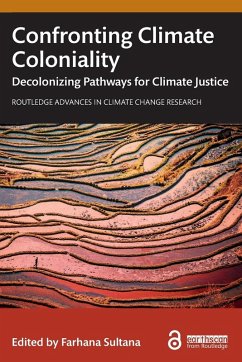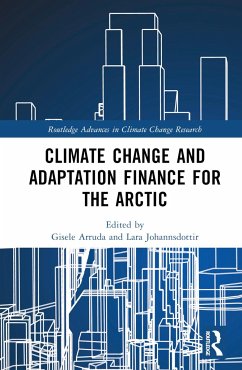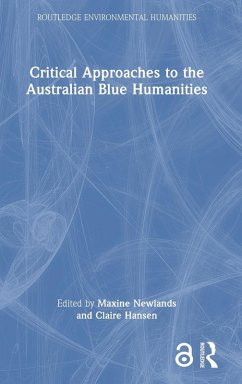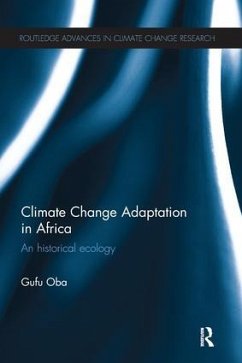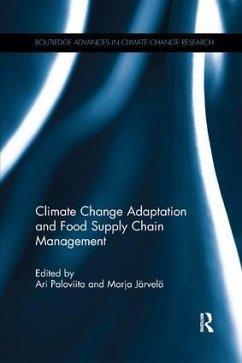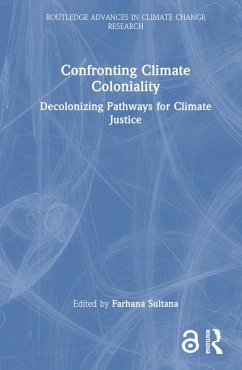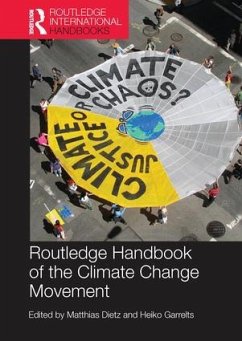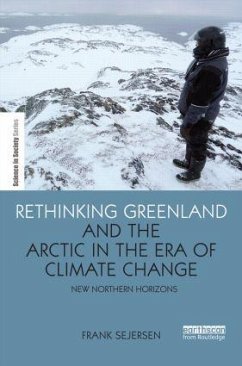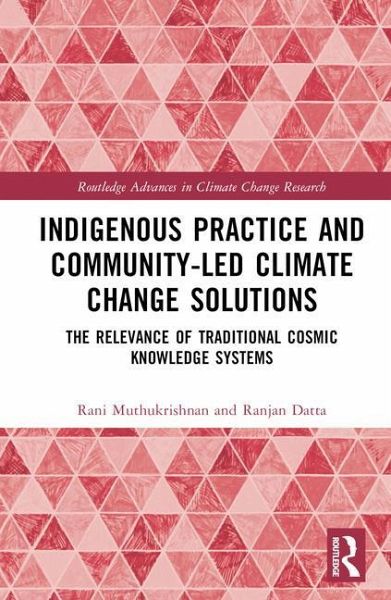
Indigenous Practice and Community-Led Climate Change Solutions
The Relevance of Traditional Cosmic Knowledge Systems
Versandkostenfrei!
Versandfertig in 6-10 Tagen
152,99 €
inkl. MwSt.
Weitere Ausgaben:

PAYBACK Punkte
76 °P sammeln!
This book centers Indigenous knowledge and practice in community-led climate change solutions.This book will be one of the first academic books to use the consciousness framework to examine and explain humans' situatedness and role in maintaining ecosystems' health. Drawing on teachings from the Indigenous Adi-Shaiva community, the authors present up-to-date research on meanings and implications of South Asian traditional cosmic knowledge, which focuses on relationality and spirituality connected to climate change. This knowledge can create innovative climate change solutions in areas includin...
This book centers Indigenous knowledge and practice in community-led climate change solutions.
This book will be one of the first academic books to use the consciousness framework to examine and explain humans' situatedness and role in maintaining ecosystems' health. Drawing on teachings from the Indigenous Adi-Shaiva community, the authors present up-to-date research on meanings and implications of South Asian traditional cosmic knowledge, which focuses on relationality and spirituality connected to climate change. This knowledge can create innovative climate change solutions in areas including land, water, traditional management, sustainability goals and expectations, and state development projects. Overall, this book provides an innovative framework for nonviolent climate solutions, which has its foundations in a traditional cosmic and consciousness-based context.
This book, which aims to bridge the gap between Indigenous and Western perspectives by re-educating researchers and decolonizing popular climate change solutions, will be of great interest to students and scholars studying climate change, conservation, environmental anthropology, and Indigenous studies on a broader scale.
This book will be one of the first academic books to use the consciousness framework to examine and explain humans' situatedness and role in maintaining ecosystems' health. Drawing on teachings from the Indigenous Adi-Shaiva community, the authors present up-to-date research on meanings and implications of South Asian traditional cosmic knowledge, which focuses on relationality and spirituality connected to climate change. This knowledge can create innovative climate change solutions in areas including land, water, traditional management, sustainability goals and expectations, and state development projects. Overall, this book provides an innovative framework for nonviolent climate solutions, which has its foundations in a traditional cosmic and consciousness-based context.
This book, which aims to bridge the gap between Indigenous and Western perspectives by re-educating researchers and decolonizing popular climate change solutions, will be of great interest to students and scholars studying climate change, conservation, environmental anthropology, and Indigenous studies on a broader scale.





